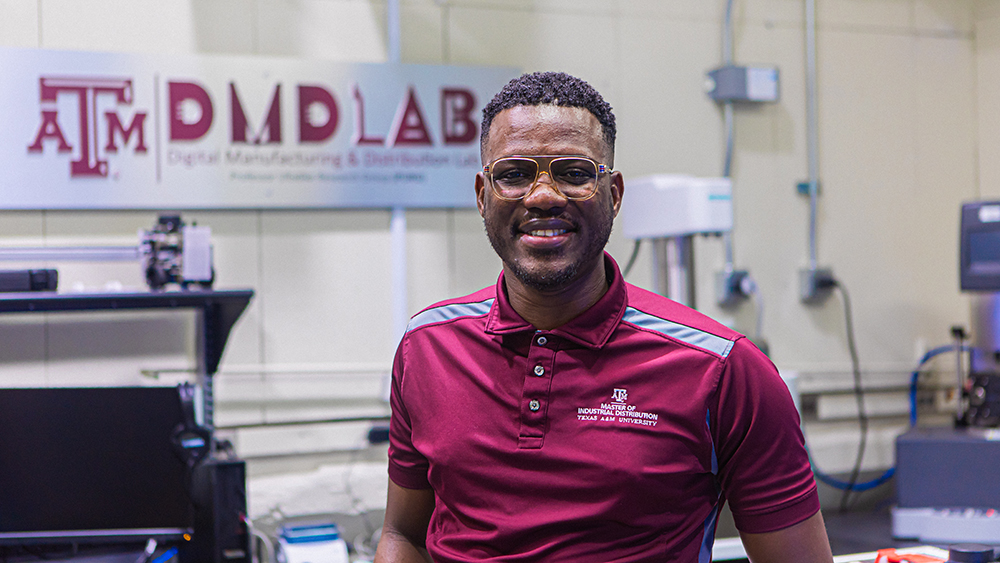
When building a brick wall, one layer must be completed before the next. This is similar to fused filament fabrication (FFF), an additive manufacturing technology in which an object is manufactured by adding and fusing melted material one layer at a time to create 3D objects.
Two FFF experts — the Digital Manufacturing and Distribution Lab (DMD-Lab) at the Texas A&M Engineering Experiment Station (TEES) and The Virtual Foundry — have partnered to explore the effects of varying sintering parameters on FFF 3D-printed titanium alloy parts.
This collaboration has the potential to impact industries such as healthcare, aerospace and beyond. According to Dr. Chukwuzubelu Ufodike, director of the DMD-Lab and assistant professor in the Department of Engineering Technology and Industrial Distribution at Texas A&M University, the anticipated product of this collaboration is lightweight, high-strength titanium components with improved mechanical properties, dimensional accuracy, and surface quality.
“By harnessing the capabilities of the DMD-Lab and our combined expertise, we aim to pioneer solutions that address industry-specific challenges and drive innovation,” Ufodike said.
The goal of the collaboration is to advance understanding of the relationship between sintering parameters and the properties of FFF 3D-printed titanium alloy parts. When 3D printing an object, raw filament — in this case, titanium — must be compacted into a solid mass via heat and pressure. This process, known as sintering, can be done at varying temperatures for various amounts of time.
Our joint efforts will enhance our knowledge of how these parameters influence dimensional accuracy and surface quality, opening up new avenues for material development and additive manufacturing processes.
Led by Ufodike, researchers will focus on the sintering temperature and time of FFF-printed titanium parts, in which a titanium filament is manufactured layer by layer.
“Through our collaborative research at the DMD-Lab, we aim to uncover critical insights into microstructural evolution and mechanical behavior resulting from variations in sintering parameters,” said Ufodike. “Our joint efforts will enhance our knowledge of how these parameters influence dimensional accuracy and surface quality, opening up new avenues for material development and additive manufacturing processes.”
The DMD-Lab is the primary lab of the Professor Ufodike Research Group. Staffed with experts and equipped with advanced technology, the lab focuses on advancements in the field of additive manufacturing. The Virtual Foundry shares this commitment to advancing metal 3D printing technologies.
“We’re thrilled to be working with Dr. Chukwuzubelu Ufodike and TEES,” said Tricia Suess, president of The Virtual Foundry. “Their expertise will be instrumental in closing the gap between inexpensive titanium 3D printing and the current process of sintering it, which today is out-of-reach for the average user.”
The Virtual Foundry offers metal 3D printing technology that can be sintered in-house and doesn’t require cloud-based software. The technology has applications in research, academia and the military.
“The synergy between this exceptional research environment and The Virtual Foundry's expertise ensures that our collaboration is poised to make a lasting impact on the field of additive manufacturing,” Ufodike said.
Funding for this research is administered by the Texas A&M Engineering Experiment Station (TEES), the official research agency for Texas A&M Engineering.